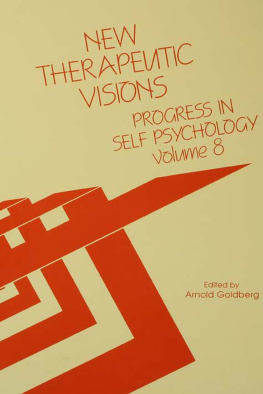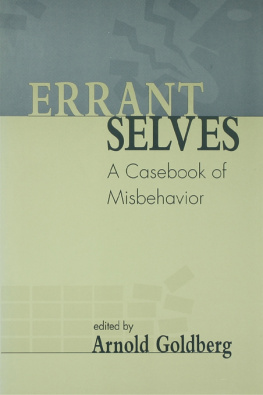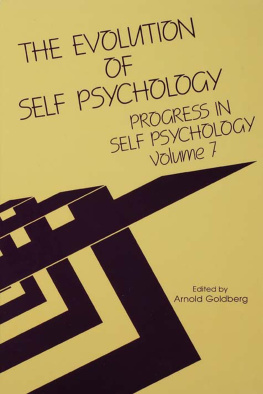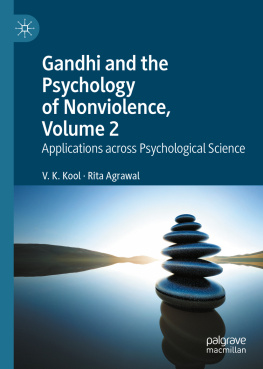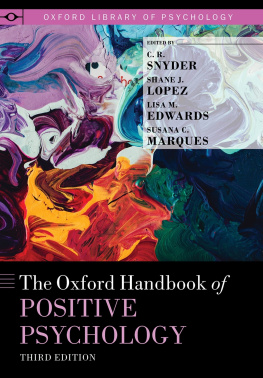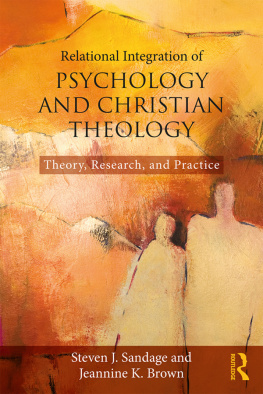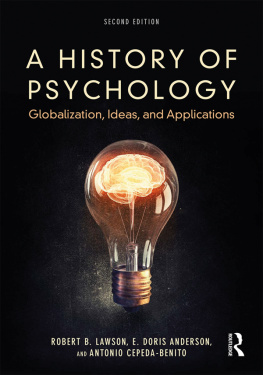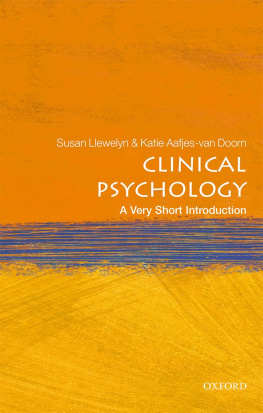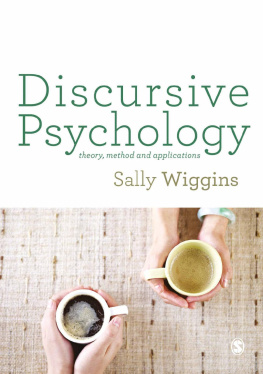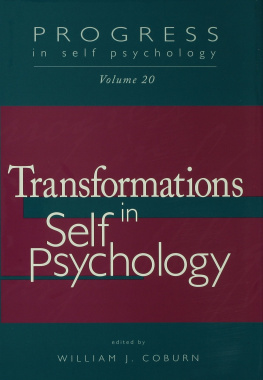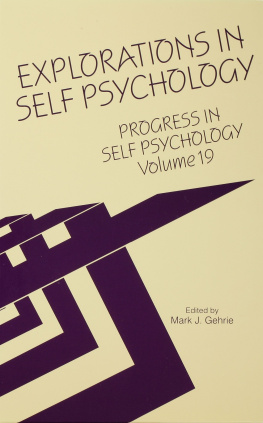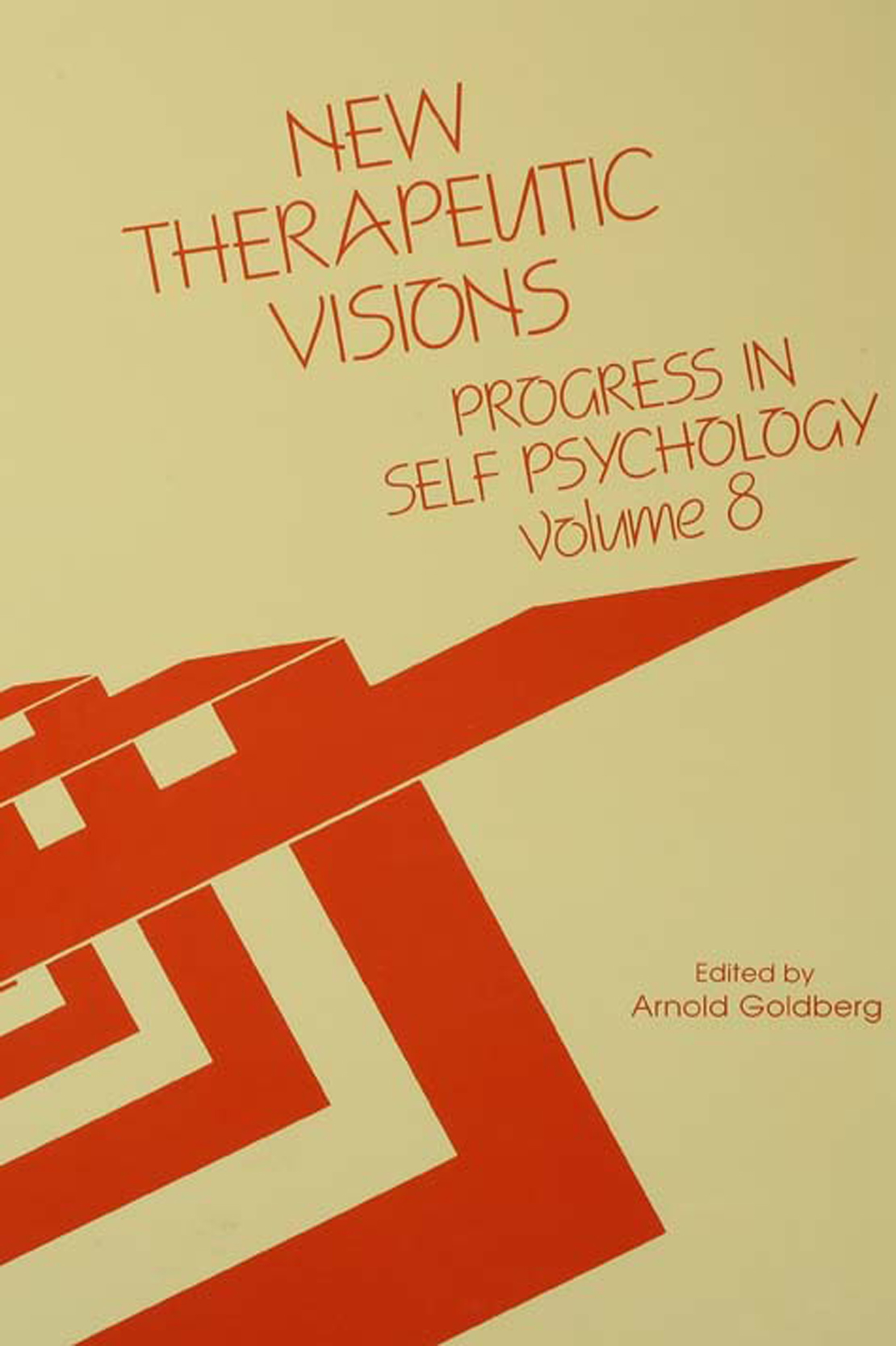James L. Fosshage
Contributors
Linda Atkins, C.S.W., Training Analyst, Senior Supervisor, Faculty, The Psychoanalytic Institute of the Postgraduate Center for Mental Health, New York City; private practice, New York City.
Michael Franz Basch, M.D., Professor of Psychiatry, Rush Medical College; Training and Supervising Analyst, Institute for Psychoanalysis, Chicago.
Beatrice Beebe, Ph.D., Core Faculty, Institute for the Psychoanalytic Study of Subjectivity; Clinical Associate Professor, New York University Postdoctoral Program in Psychoanalysis.
Bernard Brickman, M.D., Ph.D., Faculty, Training and Supervising Analyst, Southern California Psychoanalytic Institute; Faculty, Training and Supervising Analyst, Institute of Contemporary Psychoanalysis, Los Angeles.
Doris Brothers, Ph.D., Member, Board of Directors, and Faculty and Supervisor, Training and Research Institute for Self Psychology, New York City; author Falling Backwards: An Exploration of Trust and Self Experience (Norton, forthcoming).
Jill Cooper. Ph.D., author Successful Psychotherapy: Curing Codepen-dency and Other Compulsions; private practice, San Francisco.
James L. Fosshage, Ph.D., Core Faculty, Institute for the Psychoanalytic Study of Subjectivity; Clinical Associate Professor (Faculty and Supervisor), New York University Postdoctoral Program in Psychoanalysis.
Judith Kaufman, C.S.W., Codirector, NIP Regional Psychoanalytic Training Program at Kansas City; Supervisor, Postgraduate Center for Mental Health, New York City.
Frank M. Lachmann, Ph.D., Core Faculty, Institute for the Psychoanalytic Study of Subjectivity; Training Analyst, Postgraduate Center for Mental Health, New York City.
Elliott Markson, M.D., Member, The Canadian Institute of Psychoanalysis; Associate Professor, Department of Psychiatry, University of Toronto.
Donna M. Orange, Ph.D., Psy.D., Institute for the Psychoanalytic Study of Subjectivity, New York City.
Harry Paul, Ph.D., Member, Board of Directors and Faculty, Training and Research Institute for Self Psychology, New York City; coauthor (with R. Ulman) Narcissus in Wonderland: The Self Psychology of Addiction and Its Treatment (The Analytic Press, forthcoming).
Carl T. Rotenberg, M.D., Assistant Clinical Professor of Psychiatry, Yale University School of Medicine; Faculty Member, Psychoanalytic Institute of New York Medical College.
Estelle Shane, Ph.D., Training and Supervising Analyst, Los Angeles Psychoanalytic Society/Institute; Training and Supervising Analyst, Institute of Contemporary Psychoanalysis, Los Angeles.
Robert D. Stolorow, Ph.D., Faculty, Training and Supervising Analyst, Institute of Contemporary Psychoanalysis, Los Angeles; Core Faculty, Institute for the Psychoanalytic Study of Subjectivity, New York City.
Maxwell S. Sucharov, M.D., Member, Vancouver Psychoanalytic Psychotherapy Society; Clinical Instructor, Department of Psychiatry, University of British Columbia.
Richard Barrett Ulman, Ph.D., Member, Board of Directors and Faculty, Training and Research Institute for Self Psychology, New York City; coauthor (with H. Paul) Narcissus in Wonderland: The Self Psychology of Addiction and Its Treatment (The Analytic Press, forthcoming).
Bonnie Wolfe, Ph.D., Faculty, Institute of Contemporary Psychoanalysis, Los Angeles.
Introduction
David M. Terman
T his volume continues to chronicle the evolution of thought by those influenced by self psychology. As numerous authors have noted, the changes are in many areas and lead in many different directions. Subjects range from quantum physics to codependency, and from a discussion of subjectivism, relativism and realism to the function of transitional selfobjects in the genesis and treatment of addictive personality.
There is, of course, considerable work and thought concerning the selfobject, one of the most important concepts in the theory of self psychology. One group of authors attempts to integrate the concept with the classical model. Beebe and Lachmann offer a developmental approach to such an integration. They make a distinction between representational configurations and selfobject configurations. They define the latter as those which are concerned with the maintenance of the selfobject tie and with the cohesion, articulation, and vitality of the self. Representational configurations, on the other hand, have to do with the qualities of self and other and themes of their interrelationships. Beebe and Lachmann go on to explore the subtle changes in development in which differentiated patterns of experience in interaction intersect with ongoing, self-perpetuating inner patterns of organization.
Sucharov attempts another solution at the philosophical level. He sees self psychology as offering a mode of description complementary to that of classical theory. Like the wave and particle theories of light, self psychology and classical theory offer complementary views of phenomena that neither alone can explain completely and for whose explanation both are necessary. Classical theory is appropriate when the observer and the observed are separate; self psychology is appropriate when they are one.
Other authors extend the concept of the selfobject. Brickman explores the vicissitudes of the selfobject bond in the articulation of affect. Ulman and Paul introduce the ideas of a transitional selfobject that is part of normal development and of an ersatz transitional selfobject that is characteristic of the addictive personality. Shane's reviews of recent works by Wolf, Bacal and Newman, and Lichten-berg reveal other attempts at extension. Wolf proposes the concepts of the adversarial selfobject function and the efficacy selfobject function. Bacal and Newman want to extend, perhaps even alter, the meaning of the selfobject to become the self's object. Shane wonders whether that alteration would, in fact, run the danger of losing the distinction between object and selfobject. Nonetheless, though the meaning may remain the same, the applications and reexamination of otherwise understood phenomena stimulate rethinking of the nature and implications of the selfobject experience.

